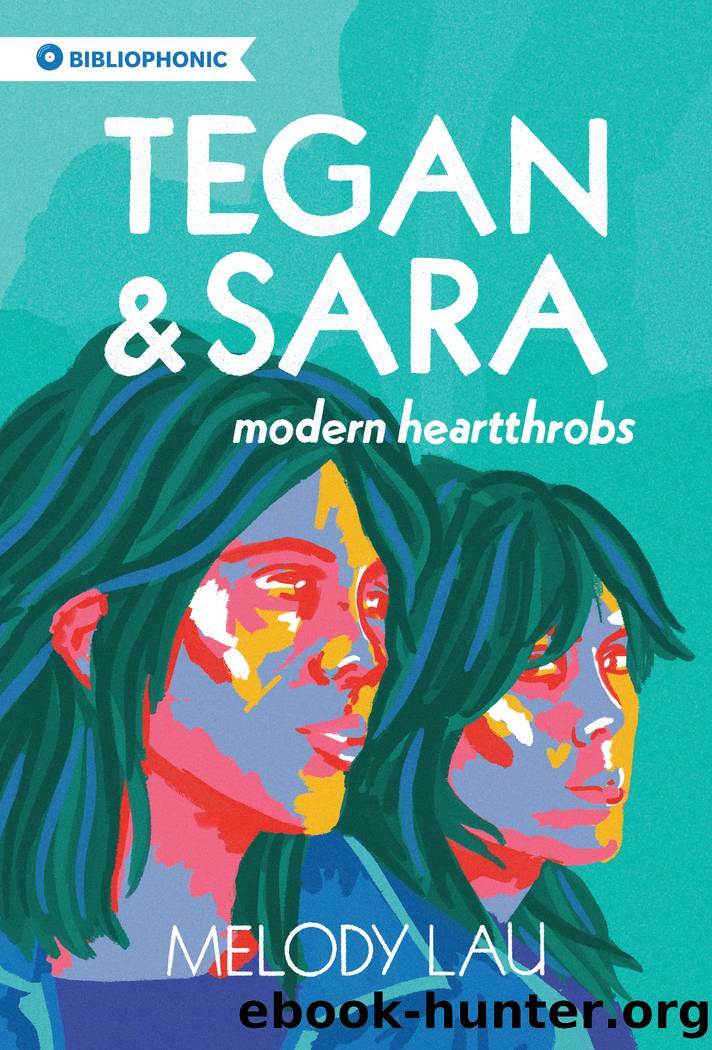Tegan and Sara by Melody Lau

Author:Melody Lau
Language: eng
Format: epub
Publisher: Invisible Publishing
Published: 2022-07-25T18:31:46+00:00
* * *
Instead of letting publications get away with their problematic writing, as Tegan and Sara had for almost a decade, Sara decided to fight back. Frustrated by the categorization of their band as âtampon rockâ in The Conâs Pitchfork review (the full line read: âTegan and Sara should no longer be mistaken for tampon rock, a comparison only fair because of the company they keptâ),51 among other superfluous jabs, Sara reached out to Pitchfork via their publicist to call them out. Ultimately, only one change was made to the piece: Pitchfork removed a line in the original review that referred to Wallaâs main occupation as being in âfellow lesbian band Death Cab for Cutie,â even though the writer later noted it as a joke. âThatâs basically saying that being in a lesbian band is a bad thing and now youâre making fun of Death Cab for Cutie using my sexuality and my lower status in your mind to put this band in a lower slot,â Sara explains.
Sara laughs at it now, but remembers thinking, âOh great, so I went to bat for the straight white guys? Donât worry, our shitty review is still there.â But she wasnât alone in calling out these types of reviews. Music critic Jessica Hopper notably blogged her response to Pitchforkâs âtampon rockâ line: âThe company they kept? Vaginas? Cos their (sic) lesbians? Is it a joke and ps. who is tampon rocking? Is that post-Lilith fair? Or just music by people who get their periods? ?!?!?!?â52 There were similar reactions to other reviews, too, like NMEâs two-star review that ends with the unnecessarily harsh line, âA saddening case of brick production, paper soulâhere the Quins are little more than twin airbags.â53
Over at Rolling Stone, critic Robert Christgauâwhom other writers have defended to me as a champion of women in musicâfalters with the opening line of his album review: âAs lesbians who never reference their oppression or even their sexuality, Tegan and Sara donât have men to lash out at, put up with, or gripe about.â Christgau argues that the âobjects of their romantic ambivalence remain distantâ54 and that The Con as an album is difficult to connect with. This comes off as a form of othering by inferring that queer artists must draw from their struggles, but also that their sexuality renders them unrelatable to people like him, a straight man. âItâs not written for the benefit of a male gaze, and itâs not written from the perspective of a male gaze,â Liss asserts, in the albumâs defense. âWhen youâre a queer woman, there can be a certain kind of bro-ing down that happens with dudes, and I think the fact that The Con evades this is Iâm sure frustrating for someone who is embedded in a certain way of thinking, letâs say.â Itâs an argument that dates back to Tegan and Saraâs earliest music, that their writing sets off an alarm to readers: if youâre not a lesbian, you might not get much from listening to the album.
Download
This site does not store any files on its server. We only index and link to content provided by other sites. Please contact the content providers to delete copyright contents if any and email us, we'll remove relevant links or contents immediately.
| Biographies & Memoirs | Comics & Graphic Novels |
| LGBT Studies | Literature & Fiction |
| Mystery & Thrillers | Romance |
| Science Fiction & Fantasy | Travel |
Spoiler Alert: The Hero Dies by Ausiello Michael(2736)
Insomniac City by Bill Hayes(2543)
Bossypants by Tina Fey(2522)
No Ashes in the Fire by Darnell L Moore(2328)
The Book of Joan by Lidia Yuknavitch(1893)
Lucky Jim by Kingsley Amis(1744)
In the Dream House by Carmen Maria Machado(1729)
Boy Erased by Garrard Conley(1727)
Journey to the Abyss by Harry Kessler(1634)
Invisible Women by Caroline Criado Perez;(1630)
Tranny by Laura Jane Grace(1604)
Redefining Realness by Janet Mock(1569)
Difficult Women by Roxane Gay(1529)
Tell by Major Margaret Witt(1437)
Course Correction by Ginny Gilder(1406)
You Can't Touch My Hair by Phoebe Robinson(1400)
Girlish by Lara Lillibridge(1384)
In the Darkroom by Susan Faludi(1371)
Love Wins by Debbie Cenziper(1357)
